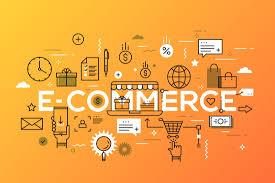
Top Business Application Software Examples Every Enterprise Should Know
September 10, 2024
In today's digital age, businesses need powerful tools to streamline processes, enhance communication, and drive productivity. From managing customer relationships to optimizing the supply chain, business application software plays a critical role in modern enterprises. In this guide, we'll explore some of the top business application software examples that every enterprise should know to stay competitive and efficient.
Enterprise Resource Planning (ERP) Systems
Enterprise Resource Planning (ERP) systems are a backbone for many large organizations. ERP software integrates various business processes like finance, supply chain, operations, reporting, manufacturing, and human resource management into a single system. This ensures that departments can communicate effectively and data is easily accessible across the entire organization.
Key Features of ERP Software
- Centralized database for all departments
- Automation of routine tasks like inventory tracking and payroll
- Real-time reporting and analytics
Some popular ERP business application software examples include SAP, Oracle ERP Cloud, and Microsoft Dynamics 365, offering scalable solutions for large enterprises and small businesses alike.
Customer Relationship Management (CRM) Software
Customer Relationship Management (CRM) software helps businesses manage their interactions with customers. It’s essential for businesses looking to enhance customer service, increase retention, and drive sales. With CRM tools, companies can keep track of customer interactions, manage leads, and analyze customer data to improve marketing strategies.
Key Features of CRM Software
- Contact and lead management
- Sales pipeline tracking
- Marketing automation
Well-known CRM business application software examples include Salesforce, HubSpot CRM, and Zoho CRM, each designed to improve customer relations and drive business growth.
Human Resource Management Systems (HRMS)
HRMS is software that aids companies in managing their workforce. It automates tasks such as payroll processing, employee performance evaluations, and recruitment, helping HR departments to function more efficiently.
Key Features of HRMS Software
- Employee records management
- Recruitment and onboarding tools
- Payroll and benefits administration
Examples of HRMS software include Workday, BambooHR, and ADP Workforce Now. These systems help enterprises streamline HR processes, allowing more time to focus on employee engagement and development.
Supply Chain Management (SCM) Software
Supply Chain Management (SCM) software is vital for companies involved in manufacturing, logistics, or retail. SCM tools help businesses manage the flow of goods, data, and finances as products move from supplier to manufacturer to retailer to consumer.
Key Features of SCM Software
- Inventory and order management
- Supplier relationship management
- Logistics and transportation optimization
Top SCM business application software examples include Oracle SCM Cloud, SAP Integrated Business Planning, and Manhattan Associates. These tools enable companies to optimize their supply chain operations, reduce costs, and improve efficiency.
Project Management Tools
Project management tools are essential for businesses that work on multiple projects simultaneously. These applications provide teams with the tools they need to plan, execute, and monitor projects efficiently. From task assignment to deadline tracking, these tools ensure that teams can collaborate effectively and meet their goals.
Key Features of Project Management Tools
- Task and resource allocation
- Timeline and deadline tracking
- Team collaboration features
Popular business application software examples in this category include Asana, Trello, and Microsoft Project, each offering tailored features for different project sizes and complexity.
Business Intelligence (BI) Software
Business Intelligence (BI) software is designed to help businesses make informed decisions by analyzing data and generating reports. These tools enable organizations to transform raw data into actionable insights, aiding in strategic planning, performance analysis, and decision-making.
Key Features of BI Software
- Data visualization and reporting
- Predictive analytics
- Performance metrics tracking
Leading business application software examples in the BI sector include Tableau, Power BI, and QlikView, each offering robust analytics capabilities that support data-driven decision-making.
Accounting and Finance Software
Accounting and finance software help businesses manage their financial transactions, track budgets, and generate financial reports. These tools are crucial for ensuring accurate financial records and compliance with tax regulations.
Key Features of Accounting Software
- Invoice and billing management
- Expense tracking and budget monitoring
- Financial reporting and tax preparation
Examples of accounting business application software include QuickBooks, Xero, and FreshBooks, providing solutions for both small businesses and large enterprises looking to streamline their financial operations.
Collaboration and Communication Platforms
Effective communication and collaboration are crucial for any business, especially in today’s increasingly remote work environment. Collaboration platforms provide businesses with tools to communicate in real-time, share files, and manage workflows.
Key Features of Collaboration Platforms
- Real-time messaging and video conferencing
- File sharing and cloud storage
- Task and workflow management
Popular business application software examples in this category include Microsoft Teams, Slack, and Zoom. These tools help teams stay connected and work together efficiently, regardless of their physical location.
Conclusion
In today’s competitive landscape, leveraging the right business application software is crucial for businesses to operate efficiently and effectively. From ERP and CRM systems to project management and collaboration tools, these applications streamline processes, improve decision-making, and enhance overall productivity. By adopting the right mix of software solutions, businesses can optimize their operations, reduce costs, and stay ahead of the competition. Whether it's managing customer relationships, improving supply chain efficiency, or enhancing collaboration, the right software can drive growth and success in any enterprise.
Leave a Reply
Related Products
You Might Like Also

Top C# Frontend Frameworks to Know in 2024
Discover the top C# frontend frameworks for 2024, including Blazor and MAUI, to enhance your development skills and create powerful cross-platform applications. Read More

A Guide to Laravel Payment Gateway Integration for Developers
Discover how to implement secure and efficient Laravel payment gateway integration, ensuring smooth transactions for your application Read More

Top 15 Web Development Problems and Their Solutions
Discover top web development problems and their solutions. Learn how to tackle performance issues, security vulnerabilities, and more for a robust web application. Read More

Advantages of E-commerce Microservices Architecture
Explore the advantages of ecommerce microservices architecture and how it can enhance scalability, performance, and efficiency for your online store. Read More

Building a Shopify Store: Key Considerations
"Discover key considerations for building a Shopify store, from plan selection to SEO, payment gateways, and exploring Shopify alternatives." Read More

Leveraging AI with Salesforce Service Cloud
Discover how AI enhances customer service with Salesforce Service Cloud. Learn key features, best practices, and future trends for seamless AI integration. Read More











